 BBC News
BBC NewsBorrowing was £17.4bn last month, the second highest October figure since monthly records began in 1993.
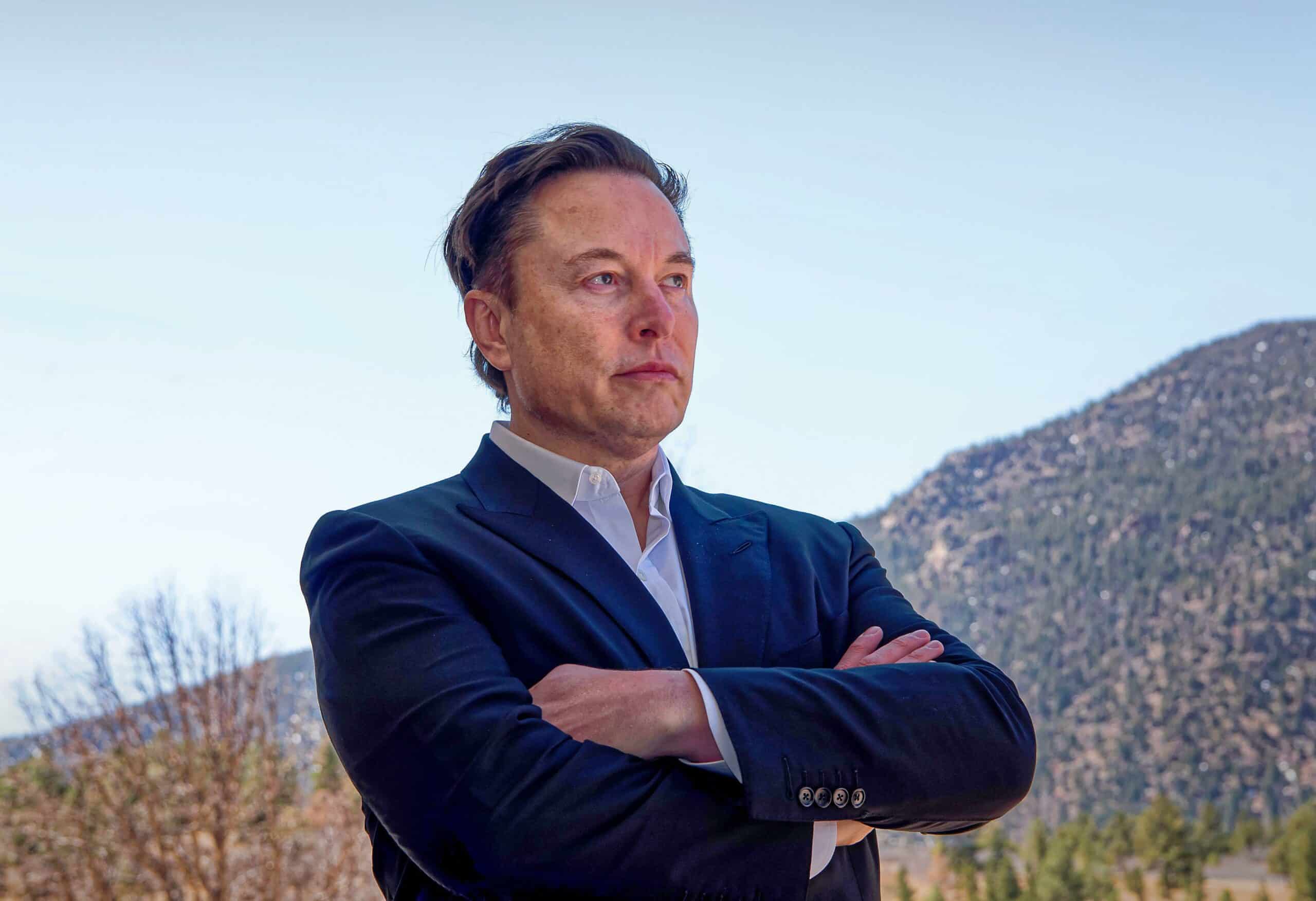
Christopher Jackson
Elon Musk is one of those public figures like Mark Zuckerberg who seems to have his own uniform. It is difficult to imagine Musk not dressed in black boots, black T-Shirt and tight-fitting black jeans. And at Bletchley Park, for an AI safety summit, here he is: like a life-size Musk doll which turns out actually to be Musk. When he speaks, he rather charmingly mumbles. I wouldn’t call his fellow tech billionaires Bill Gates, Jeff Bezos, or Zuckerberg disarming. Musk is. He has a way of murmuring intelligently, even humbly. There is something mesmerising and centred about him which is separate from his wealth.
Speaking to the UK prime minister Rishi Sunak, he says: “I think actually [this summit] will go down in history as being very important. I think it’s really quite profound.”
This praise is offered somewhat in the voice of a homeless person soliloquising at a bus-stop. But it seems to do the trick. Sunak himself looks like being prime minister may have been less to do with forging some sort of change to Britain than an elaborate attempt to meet Musk, which is only on this day meeting bearing fruition. When Musk compliments Sunak on inviting China, I briefly think Sunak might weep for joy. “Having them here, I think is essential really. If they’re not participants, it’s pointless. I think if the United States and the UK and China are aligned on safety, that’s all going to be a good thing.”
The inescapable conclusion is that Musk is more powerful than Sunak – or he certainly seems to be at Bletchley. Musk is not only one of the people likely to shape the destiny of AI, and therefore the future of humanity; he can also get into space in a way that NASA can’t (SpaceX); give internet to places like Ukraine if he wants to (SpaceX again); control the future of the electric car (Tesla); control the future of robotics (Tesla, Neuralink); drill vast tunnels and solve your traffic problems (The Boring Company); collect vast troves of data (Twitter); decide on the direction of free speech (Twitter); and has also had, or is about to have, a say on our the financial system works (PayPal, perhaps Twitter again). Rishi Sunak on the other hand will likely shortly retreat into private life, probably as a sort of a middling financier. No wonder Sunak was in his own words ‘privileged and excited’ to be interviewing Musk and not the other way round.
What else did Musk say during the interview after the Bletchley Park summit at Lancaster House. From the perspective of work, Musk predicted that AI would ‘create a future of abundance where there is no scarcity of goods and services. There will come a point when no job is needed – you can have a job if you want for personal satisfaction, but the AI will be able to do everything.”
These were stirring words for an employability magazine to hear. After the talk, some listeners were taking Musk’s words with a pinch of salt. The South African-born entrepreneur hasn’t got to where he is by thinking small ball about the future: it is almost a running joke that every year at his Tesla presentation he predicts that driverless cars are imminent: and every year that turns out not to be the case – so far.
But the naysayers should also beware: Musk has a habit of making things happen which onlookers had thought impossible: nobody expected SpaceX, Tesla, or Neuralink. We didn’t think reusable rockets could be a thing; they are. I never thought it possible for a robot to delicately pick up an egg and transfer it from one hand to the other; Musk thought it doable and made it happen. This is a man who has repeatedly changed the world by sheer gumption, hard work, imagination, zeal, and brutal workplace practices. We might not like him, but we’d be crazy at this point not to pay attention.
The Musk Method
The Musk we see at Bletchley and later at Lancaster House might seem unassuming and even gentle, but it is one of many Musks – to put the matter mildly. Musk is protean; like many great men, he is complex – at constant motion. As is so often the case when it comes to well-known people, journalists get the most palatable version. But there are others Musks than the one we see at Bletchley: the goofy version who bought a sink into Twitter on his first day as a pun on the idea of ‘Let that sink in’ referring, I think, to the new working culture which he would bring to the social media company. For someone so intelligent, Musk’s sense of humour can be remarkably puerile, as followers of his X feed will know.

Then there is the dreamer, often to be found in Isaacson’s indispensable biography Elon Musk: this Musk is to be seen off to one side of a busy room, letting the future and his role in it coalesce around him. A science fiction fan when young – perhaps the biggest single influence on him is Douglas Adams’ Hitchhiker’s Guide to the Galaxy – it can seem as if he is more comfortable out of the present moment, inhabiting future ones. With Musk, contemplation of the future is a salve to stress: it is, I think, a kind of resting-place with him.
Then there is the Napoleonic questioner: the Musk who stalks his factories and asks questions of his staff. Could this be done more efficiently? Most importantly: could it be done more quickly? This version of Musk is difficult to distinguish from Musk the Engineer and Musk the Mathematician – someone who both presides over his companies, and also occasionally interferes with theme, descending onto his engineers with quixotic passion or baffling rage. With his sudden lurches, and bursts of frenetic activity, he seems as far as possible from the man we see at Bletchley with his softly spoken politesse as almost to amount to a different person altogether.
James Badgett, the CEO and founder of the Angel Investment Network, has seen thousands of businesses come through his doors since the company’s inception. He helps me begin to get the measure of Musk: “One thing I have noticed is that engineers make really successful entrepreneurs – the two often go hand in hand. That’s not just to do with knowing the detail of the mechanics and the workings of a project: Musk is remarkable at that, particularly in his feel for a problem. It’s also because companies at their best need to work with something like the logic of machines. They need to have their own workings, and their own mechanisms. Musk is a prime example of this – he is a brilliant engineer but also an engineer who uses that knowledge to create efficient corporate systems.”
This is certainly the case. But it also opens up onto another Musk, the one his colleagues fear. This is the version identified by his partner Grimes called ‘demon mode’. This Musk is full of a dark rage, and comes into being with an unsettling randomness. Demon Mode Musk manifests as supreme urgency, and goes like this. A product or situation will be adduced by a hapless underling, possibly a newbie. It will not be good enough. Musk tends not to be polite about not good enough in general – but he is especially disparaging about the subpar when in demon mode. In such instances it leads to rage and dismay. “Does this timeline seem like something I would find remotely acceptable? Obviously not. If a timeline is long, then it’s wrong,” Isaacson quotes him as saying in relation to a situation with the servers at Twitter on December 22nd 2022. This then is followed by: the imposition of an insane deadline; the overriding of any opposition to that deadline, usually by threatening job losses; a series of firings anyway; a period of manic and sapping activity; the creation of something new.

This isn’t always successful in its entirety. In Isaacson’s book, he recounts Musk’s decision so move all the servers on Christmas Eve. Everyone says it will take six months, but Musk gets it done in a week – although in retrospect he admits it was probably a mistake. Even so, Musk’s career with all its outsized achievements is unthinkable without demon mode. It is what gives him his edge.
Which is enough to make us all wonder whether we have enough urgency in our own working lives. Most readers of Isaacson’s book will feel quite simply that they didn’t do enough today. And maybe they didn’t.
But there is something informative about the Musk energy. When you emerge on the other side of Isaacson’s book, you realise that almost every business you’ve ever interacted with is too sedate to be what Musk would regard as fit for purpose. One London lawyer I speak to, who has worked with Musk, is prepared to corroborate this, though prefers to remain anonymous. “I was on a call with him and the work energy was different to anything I’ve experienced before. It was so intense and focused. We had some recommendations to make, and Musk assimilated them so quickly that what would normally have been a two hour call was over in five minutes. He broke down our instructions and then gave orders and deadlines. That was that. It was astonishing – I’ve never experienced anything like it.”
Introducing Errol
So why is he this way? One of the most striking things about Musk is the strained relationship with his father, who was extremely brutal to the young Elon, and today sways between family sage and internet conspiracy theorist.
It is also worth noting that Musk was also bullied when young and growing up in South Africa. It seems to have lodged enormous defiance in him – and ambition. Some of the instances in Isaacson’s book are appalling. At one point, Musk is bullied severely at school. When his father finds out, rather than extending sympathy, he gives the young Elon a psychologically tormenting rant about his weakness.
When I talk to the revered psychologist Dr. Paul Hokemeyer, I ask if trauma of this nature can be resolved by an outsized work ethic? Hokemeyer explains: “Trauma, and in particular relational trauma where a child feels rejected and is abused by a primary caregiver, has a profoundly negative impact on the child’s physical, emotional, and relational functioning. This is especially true in situations where the trauma is ongoing, chronic, and pervasive rather than being a one-off event such as being involved in a motor accident or witnessing a horrific event. The latter is known as simple trauma whilst the later, complex. Abusive relationships with parents fall squarely in the category of complex trauma.”
We are therefore in a position where the most powerful man in the world is dealing with trauma on a rather considerable scale. Hokemeyer continues: “In these cases, the child’s central nervous system operates in a perennial state of crisis and produces a steady stream of toxic neurochemicals that flow through their entire body. Because all of this happens during critically important developmental stages of a child’s life, this complex trauma causes significant damage to a person’s sense of self and self-esteem, their brain functioning, their ability to have intimate relationships and to effectively regulate their emotions. It also instils in them a haunting message that they are not enough, unlovable, and unsafe in a hostile world.”
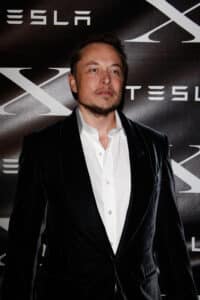
This rings true and can be seen at certain points in Musk’s life: especially in those moments of sudden intense focus à la demon mode. So how does this manifest in Musk? Hokemeyer is clear: “For these reasons, men and women like Musk, people who are compulsively driven to attain extreme levels of power, fame, and financial success, typically struggle under an internalized narrative of scarcity. The lens through which they view the world and their place in it is colored by a chronic sense of impending annihilation. At any given moment, they feel their world can be invaded by vicious predators who will shame and torture them to a slow and humiliating death.”
And how is it possible to offset these feelings of shame? “To guard against these persistent threats to their existence, these incredibly clever and talented individuals invest their life force in attaining exaggerated levels of wealth and garish levels of individual power. In our capitalistic world, such herculean investments pay exceptional dividends for the highly clever, the compulsively driven and the emotionally extinct. These men and women are not limited by considerations of intimacy, morality, equity, empathy, or compassion. They are myopically focused on the outcomes of a zero-sum game where the winner takes all and the losers get what they deserve. And because they are idolized and handed even more power by virtue of their outsized influence they are never called to account for their actions or to change their way of viewing and operating in the world. The irony is that the higher up the power and wealth scale they get, the less safe and secure they feel and thus, the harder they need to work and insensitive they need to become to maintain a baseline level of protection from the hostilities they internalized as highly vulnerable youths.”
This sounds – and is – bad. It seems certain that Musk, carrying around in him these sorts of traumas, has sometimes felt very little when he has treated employees with bluntness, and often with cruelty. But Musk’s career makes us wonder whether he would have achieved much, or even anything, without them: his traumas feel so woven into his life story, that I wonder if we’d have Tesla, reusable rockets, Optimus, and many others if that man hadn’t, when just a boy, experienced such pain.
Off with the Birds
But not all of this trauma has been to the good: there remains the perception that Musk almost enjoys creating difficulty for himself. He distrusts peace; no sooner than he sees a clear blue sky than he thinks of brewing up a storm. For example, in the leadup to his sudden purchase of Twitter, everything was going eerily well for Musk. He was selling vast numbers of Teslas, and SpaceX was making more successful missions than ever before. In this context, the purchase of Twitter seemed unnecessary and even borderline mad.
When I ask around, I get a wide variety of views on the platform now known as X. “I think he dramatically overpaid for it,” says the philanthropist and businessman Mohamed Amersi, who has just penned his autobiography Why?. “The danger is that he is now going to control it to the point of extinction. And the rebranding from Twitter to X was bad – and his approach to free speech may well be deemed unconventional.” Meanwhile, the founder of Ebookers Dinesh Dhamija, and author of The Indian Century, is prepared to wait and see: “I think that it’s too short a time since his purchase for one to make up one’s mind. By relabelling the platform X, he’s moulded it in his own image; one has to give it two or three years to see.”
It’s easy to criticise Musk’s tweets and his purchase of Twitter: for many people it is a strategic error because it has taken him away from his strong suit of engineering into the media world where he is less suited as he limited empathy with other people.
Yet a surprising number of people I speak to are positive about Musk’s purchase. “I think it’s a fantastic platform, and that the free speech element is so important,” says Badgett. “It will come good.” When I speak to Anushka Sharma, who has wide experience in startups, she says: “With Elon orchestrating, there’s a whole load more happening than you think. There’s always been a play with X; it was never just about publishing. It’s the payments stuff. By now none of this should surprise us, he has a bigger plan.”
One person who agrees with that is Stephen James, the CEO of Hermes Digital, who has deep experience of using all social platforms including Twitter before and after Musk’s purchase. He tells me: “I find the recent transformation of Twitter under Elon Musk’s leadership a fascinating case study in strategic adaptation and influence. The platform’s evolution into “X” under Musk’s guidance has been akin to watching a master chess player at work. The introduction of a premium subscription model, which filters out noise and anonymous accounts while simultaneously encouraging free speech, has been a strategic move in a complex game, where controlling the narrative becomes as important as the narrative itself. This new Twitter landscape offers a more streamlined, focused environment for communication – it allows me to cut through with the messaging for my clients, particularly politicians.”
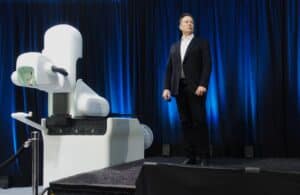
James admires the way in which Musk is beginning to create a set of structures around which free and measured speech can prosper: “Musk’s emphasis on free speech, while opening the platform to a broader spectrum of voices, also necessitates a delicate balance. In this new era of “X,” every tweet, every statement must be made with precision and intention, balancing the fine line between transparency and strategic communication. Why? To be verified, you need to supply contact details and payment details… which means you can be held to account for what you say! This underpins the importance of a measured, calculated communication strategy, especially for my clients where we are building personal brands and networks.”
For James, we underestimate Musk at our peril: “It strikes me as a strategic masterstroke,” he continues. “The platform’s ability to provide real-time data and insights, particularly when integrated with AI, is invaluable. It’s akin to having an ancient oracle atop a mountain that can gauge public sentiment and trends – a crucial tool in shaping effective strategies for those in the public eye and also running businesses.”
When I ask James for applications of how Musk might ultimately be able to leverage the X business, he cites the government’s use of the 77th Brigade during the Covid crisis to monitor social media posts. “Machiavelli said it’s better for a prince to be feared than loved. Along the same theme, we could ask if you had to choose between being wealthy with money or powerful with knowledge (data), which would you choose?” It goes almost without saying that Musk has chosen both.
Elon’s Guide to the Galaxy
Nevertheless, the Twitter sale – whatever one thinks of the wisdom of it – is really of a piece with the way in which Musk does business. He never thinks how to make money – he thinks about a goal. We need electric cars, or we need to get to Mars, or we need to build better tunnels, or have safeguarded AI. He then works back to figure out how to make money from this. Badgett says: “I think this partly shows the level that he’s at – he has enough money where he can think: ‘Now what are the big problems that humanity needs to solve’?. On the other hand, he’s definitely always had these grand visions for humanity – most notably the urge to get to Mars.”
The filmmaker Guy Ritchie, who is focussed on his own grand creation of WildKitchen, an outdoors-indoors cooking unit, tells me: “I quite like him: he’s hilarious. He’s playing a big game.”
In general Ritchie respects Musk’s approach: “I love him for being so radical – that’s what I like about him, he goes against the political zeitgeist. He seemed like he was going one way then went another way. I wonder how he’ll stand on his narrative over electric cars: it’s probably a wobbly narrative and I feel he’s transcended it.” It does seem as though Musk is paradoxically committed to what might be viewed as the left-wing narrative of climate change with Tesla, while also reserving the right to be a defender of Donald Trump’s free speech.
However, Ritchie is not so sure about Musk’s plans to get to Mars with SpaceX: “You don’t want to live on another planet: it would be like living in a gilded cage in hell.”
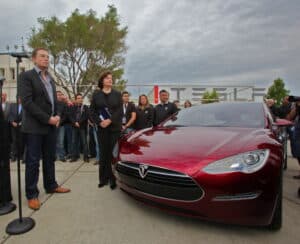
Stars and Mars
In many respects, the goal to get to Mars is core to Musk’s life. Is this a realistic goal? To gauge the anwer, I talk with the Astronomer-Royal Lord Rees. Rees is well-qualified to comment since his book On the Future, now translated into 20 languages, and his more recent book The End of Astronauts, grapples either explicitly or by implication with what Musk is trying to do at SpaceX. “In my books, I argue that as robots get better and more sophisticated, the practical case for sending people into space – at least lower than Low Earth Orbit – gets weaker all the time,” he tells me. “That’s because it’s very expensive to support humans on a journey to Mars. You have to provide a year of food, and protect them from all sorts of hazards – whereas robots can be sent more easily and with one-way tickets.”
Anyone who has seen video footage of Optimus, Tesla’s most advanced robot yet, which has human-like grace in many of its movements – though also slightly odd low-slung walk like someone in an egg-and-spoon race, will be able to imagine what Rees is describing. He continues: “For that reason, if I was an American taxpayer or European taxpayer I wouldn’t support NASA’s or ESA’s programmes for manned space flight. On the other hand, I’m prepared to cheer on the endeavours of Jeff Bezos and Elon Musk in the private sector. Firstly, they’re not using taxpayers’ money, and secondly they can take higher risks than NASA or ESA can when sending civilians into space.”
Despite this, Rees is realistic – and even cautious – about what is possible for humans in the hostile environments which await us beyond the earth’s atmosphere. “It’s also important to think of space as being a dangerous environment. We should talk about Space Adventure and not Space Tourism, for instance. I’d argue that Branson makes a mistake in talking of tourism as if travel beyond this planet would ever be normal; if you take that view the first accident is going to be traumatic. If these private sponsors are prepared to send risk-takers up into space – the Sir Ranulph Fiennes’ of this world– I’m prepared to cheer them on.”

So what does he think will happen? “My prediction is that by the end of the century there will be a few pioneers living on Mars, but they’ll be that kind of person. Elon Musk has said he wants to die in Mars but not on impact. And he’s fifty years old; it’s just about achievable. These pioneers will have a long-term importance, and they’ll be in a very hostile environment. They’ll want to take advantage of all the techniques of genetic engineering and cyborgs and so on.”
That’s in contrast with the vast majority of us with less appetite for risk than Musk. “Here on earth we’re going want to regulate and constrain things like genetic modification on both prudential and ethical grounds. These guys will be away from all the regulators anywhere and have a far greater incentive. I imagine a few centuries from now they will have become a new species – secondary intelligent design will be much faster than Darwinian natural selection.”
This is a truly astonishing notion, and it makes one’s head spin. The Mars mission has its critics. One vaguely accepts that it should be priority at some point to have a presence there, since every palaeontologist knows that asteroids do hit earth. However, it doesn’t happen regularly – and the majority of scientists argue that climate change is happening now. Bill Gates tells Isaacson: “I’m not a Mars person He [Musk] is overboard on Mars. I let him explain his Mars thinking to me, which is kind of bizarre thinking. It’s this crazy thing where maybe there’s a nuclear war on Earth and so the people on Mars are there and they’ll come back down, and you know, be alive when we all kill each other.”
You can feel Gates’ contempt for the idea. Meanwhile, Rees criticises Musk from another angle: “Of course, the money might be better spent on the environment – but if it’s spent by individuals who otherwise would buy a football team or a huge yacht, I’m prepared to support it.” Even so he laces this acceptance with a warning: “Musk, like my late colleague Stephen Hawking, thinks that there should be mass emigration to Mars to escape the problems of the earth. That’s a dangerous delusion. Dealing with climate change is a big challenge, but it’s a doddle compared to terra forming Mars. There isn’t a Planet B for ordinary risk-averse people.”
Space Jobs Alert
On the other hand, we’re a species of dreamers, and I suspect it will be very hard to change that. Besides, in the future – which seems to have a habit of arriving quicker and quicker all the time – a career in space won’t be only for those with the ability to tolerate risk. Anushka Sharma, the founder of the London Space Network, explains to me some of her backstory: “I set up the London Space Network as a community which anybody with an interest in the UK space sector can join. We now have 1200 members on our list from students and astronauts, and space agency people.”
So how does she think Musk, and his competitors, will shape the future? “When we think about humans and navigation, and the whole question of travel on earth, we’ve always used the stars to navigate – but the opportunity of building a human presence on Mars, and on icy moons, presents the possibility of the foundation of our human future. At the moment, only nation states through their agencies have managed to land on the surface of the moon. But SpaceX and other companies are removing these barriers meaning that state resources can be relocated to the exploration science.”
That’s an enticing prospect in itself. But meanwhile, there are employability implications not just for governments but for all of us. “When the cost of space travel comes down it will open up huge markets of growth,” Sharma continues. “Who doesn’t want to wear a pair of trainers that have been in space or products that have orbited our planet?. Children everywhere will be inspired to innovate; the opportunities for a STEM career will be unimaginable. Will there be art galleries on the moon in 100 years’ time? We would get so bored if we didn’t think beyond our planet. This is why I care about the space sector.”
And what does she think of Lord Rees’ idea that there will one day be a civilisation on Mars evolving at a different pace to the less risk-averse here on earth? “I get that – but I think that for me I need to fight for everyone and make sure space is as inclusive and open as possible. I don’t want to see a duality whereby the rich are the only ones who can access those trips. That’s why I try to be open as possible with everyone I meet across every background. Martin Rees is an incredible force with extraordinary insight – I just hope he’s slightly wrong!”
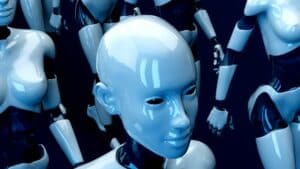
And what does Sharma think of Musk? “If you look at the career trajectory, he’s an incredibly intelligent man. Elon is just incredibly good at building companies. We were told that electric cars wouldn’t be a thing – now look at the shift and disruption that he’s caused to the automotive industry generally. Likewise, his decision to engineer rockets to be reusable. It’s impossible to think of anyone in our time who has had such an impact on technology and production.”
What about his style of leadership and the silly tweets? “I’ve not worked directly with him, but know people who have. He has this style of leadership. But he’s moved things forwards in leaps and bounds which has disrupted the space ecosystem. I would also love to shift some of his thinking to be more open and inclusive.”
Inclusive in what ways specifically? “I want more of a feminine presence on the space sector: having said that, I tip my hat to Gwyneth Shotwell, who has been running the operation at SpaceX and is also a force of nature. So Musk does build teams, which together help him fulfil this vision. Even so you do hear of engineers at SpaceX paid peanuts who should be paid more. But he’s played a big part in awakening our imaginations.”
Sharma points to a specific example of the recent competition for a group of artists to go around the moon with SpaceX – the so-called Dear Moon crew. In the end all the tickets were bought up by Japanese entrepreneur Yusaku Maezawa, who then made sure they got to a broad cross section of talented and interesting people including British photographer Karim Iliya and American DJ Steve Aoki. “These are inspirational stories, of everyday people getting access to space, and it’s all been underwritten by a billionaire. This will shift the imagination even more, and it’s a SpaceX initiative.”
Tesla and all that
Of course, Musk is spread thin – he must be owner of the finest portfolio career in the history of the world making former Chancellor George Osborne look lazy. Musk’s career shows a surprising degree of unity for someone who does so much although one can sometimes, for instance, wonder if there is tension between, say, his espousal of electric cars, and the environmental pollution causes by SpaceX.
Dinesh Dhamija cherishes his Tesla: “I’m a big fan of Tesla,” he tells me. “When I sold ebookers.com, I had salespeople trying to interest me in all kinds of fancy cars. Some of them I couldn’t squeeze into. Others just made me feel like a polluting road-hog. Several years later, I’m still extremely happy in my quiet, smooth, comfortable and non-polluting Tesla. And so is my wife, in hers.”
So what does Dhamija think will happen next when it comes to electric cars? It’s exciting to see that Elon Musk is getting serious about setting up Tesla in India. He’s met Narendra Modi a couple of times already and held meetings with commerce minister Piyush Goyal about building one of his mega factories in the country. Of course, there are hurdles to overcome. Despite hundreds of millions of consumers, few Indian car buyers can afford to pay $38,000 (the current cheapest Tesla). The government would have to lower its 70 per cent tariff on cars below $40,000 and 100 per cent on cars above $40,000, which will be resisted by domestic carmakers.”
How might these hurdles be surmounted? “An Indian government official was quoted in the Financial Times proposing a 15 per cent tariff for all EVs, in return for building a plant in the country,” explains Dhamija. “Infrastructure for EVs is basic to non-existent in much of India. Right now, they make up just 1.5 per cent of passenger vehicles sold in the country. And the most popular types of car are tiny, compared with the spacious Tesla saloons.”
Despite the possible hurdles, Dhamija is confident that they’ll be surmounted. “Like so much in Elon Musk’s career, the idea of attacking the India market shows imagination and vision beyond the scope of most other people. He sets almost ridiculously high targets – the latest is to produce 20 million cars a year by 2030, more than Toyota and Volkswagen combined. For India and specifically for Narendra Modi, a new Tesla plant would give all the right signals: it would show that he welcomes industrial investment, is further developing his green agenda, boosting high tech employment and helping to improve India’s terrible air quality.”
Dhamija explains that he doesn’t buy his Teslas, he leases them. “The reason is that the technology advances so quickly over the course of six months. By leasing, you get a better deal. There are other competitors of Tesla and they’re fine too.”
Dhamija was referring to reports that in the last three months of 2023, BYD, a Shenzhen-based EV giant, sold 526,000 fully electric vehicles to Tesla’s 484,000. What does Dhamija think of this? “I’m not worried if Elon Musk wins the car competition by numbers – though I’m sure he makes much more profit than they do. As long as keeps advancing the technology that’s fine. He is ahead of everybody else.”
To what does Dhamija attribute Musk’s success? “I just saw his factory from the motorway in Germany outside Berlin and it’s huge: as you drive past it, it goes on and on and on. I discovered that when he went there recently, he didn’t stay in the hotel, he stayed in the factory. Time is money. If you can get something done faster than others that’s impressive.”
Does Dhamija see any tension between the work of, say SpaceX, and the stated goal of an electric car future? “I’m not a purist in these matters,” Dhamija says, unwilling to criticise someone who has achieved so much. Mohamed Amersi agrees: “I agree absolutely with his mission to Mars. It is an important part of human nature to push the envelope. We need to explore new frontiers. If we agree on that, we have to accept that the only way at the moment for space travel to happen at all is for conventional jet propulsion fuel. In ten years there will be greener fuel, presumably a nuclear-based alternative. But we can’t delay the conquering of new frontiers for that to happen.”
Amersi has met Musk and recounts his experiences. “Elon Musk was in attendance once at Dumfries House, and behaved somewhat arrogantly. He came to the house because he thought that Charles was living there, and so flew in with his girlfriend on a private jet. What I think Musk wanted to be faced with some transformational tech ideas. What he found instead was Charles’ admirable commitment to improving lives and livelihoods and to reskilling local communities. He didn’t even stay for dinner, which was a shocking breach of protocol.”
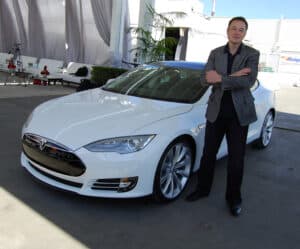
This rings true – in Isaacson’s book, he refers to philanthropy as ‘mainly bullshit’. For Musk, change is best brought about by the corporate sector. Amersi continues: “I have a photo of me with Charles and Musk, before beautiful Renaissance tapestries; me, in national garb, and Musk holding forth. There is no art to find the mind’s construction in the face. The conversation seems very civilised, and it was to some extent. But my main memory is that Charles and Musk were very far from a meeting of minds. Charles expressed his concern that driverless cars would take away people’s jobs and Musk replied that for every job lost he would invent five new jobs for them, and that all he needed was to be able to skill people to do those jobs. They were talking at cross purposes over a great divide: the concerned Charles and the profit-minded Musk. It was an image of two different time scales when it comes to money: Charles’ family is and always will be one the richest families in the world; Musk had made his wealth recently – and it showed.”
On the question of philanthropy, Musk has clashed with Bill Gates, not least because Gates took a half billion short position against Tesla, thinking that ultimately demand for the cars would dry up. Never one to mince words, this led Musk to describe Gates as ‘categorically insane’ and ‘an asshole to the core’, but Gates has been more obliging about Musk’s achievements: “You can feel whatever you want about Elon’s behaviour, but there is no one in our time who has done more to push the bounds of science and innovation than he has.”
This is the thing with Musk – everything keeps coming back to his behaviour. This is even more the case now that he owns Twitter. Errol Musk has a tendency to tweet conspiracy theories. Musk loathes his father – but now he does the same. I become interested in these blind spots in our lives and ask Hokemeyer why we are drawn to emulation of someone we might think we despise? Is this involuntary genetics at work or might there be something more going on?
“Human beings are hardwired for emotional connections,” Hokemeyer tells me. “We come into this world completely dependent on the approval, love, and nurturance of our primary caregivers. All goes well when we get sufficient care, but when there is a breach in this care, particularly over a long period of time, what were adaptive survival techniques to deal with these breaches often morph into significant personality disorders, mental illness, and even physical illnesses such as hypertension and stress related diseases. And while the adaptation in the face of parental abuse and rejection calls for a conscious swearing off of interpersonal vulnerability, as a person matures, there remains an organic and biological need for neuropeptides such as oxytocin and vasopressin in men that are generated through intimacy that our bodies physically crave to feel safe and at ease in the world.” So Elon is still trying to get Errol’s love – and perhaps has subconsciously chosen Twitter as a way to do so? Hokemeyer seems to agree: “These primal urges never go away and in fact, in my clinical experience re-emerge with great intensity as a person reaches late middle age and begins to become aware of their impending mortality and how they have behaved during their life. In these cases, they are called on a deep intrapsychic level to fix that which was originally broken.”
The Future is Musk
Whether one likes it or not, the impression is that Musk is living a definitive life; it is quite clearly one of the most important of our times in terms of his ambition, the range of his activities, and the high achieving example he has set.
If you want to know the future, a study of Musk is indispensable not just because he will help define it, but because more than anyone I can imagine, he lives there within the realm of his imagination. Talking to Sunak, Musk says: “One of the challenges in the future will be how do we find meaning in life if you have a magic genie that can do everything you want.”
It’s grand statements like this which draw us to Musk, in spite of the things he has retweeted which he shouldn’t have and the nagging suspicion that we could never be his friend. To consider him is to be jolted out of a torpor you didn’t know you were experiencing. As Sharma puts it: “He’s definitely had one of the biggest impacts of anyone alive today, if not the biggest. When I think of Elon I realise that we only have a finite term on our planet: his work ethic is to live quite simply, and to acknowledge that time is the only resource none of us have enough of: that’s an acknowledgement we have to make if we want to create true change. That’s what drives him, and it opens up onto a set of facts we’re now all awake to: your children’s future is fast-changing, and some of this change is determined by decisions taken before they were born. At a time when science and technology is opening up new avenues, I feel we have a unique window of opportunity now; I feel incredibly grateful to be born into this era.”
Which is in many ways the era of Musk. His example, considered at its best, seems to lay down the gauntlet to the education system to produce a new generation of far-sighted people who can feel at home and propser in the future which Musk has already to some extent brought about. Stephen James, in addition to his role at Hermes Digital, is also the founder of Conservative Friends of Education, and sees an opportunity here in the realm of education which he hopes governments will take up. “Some might see Musk as a pseudo Bond villain, but his entrepreneurial spirit is a beacon, and the education system, I believe, must foster such innovative minds,” he tells me. “It’s not just about imparting knowledge but about instilling a sense of strategic thinking and resilience. Encouraging young entrepreneurs through initiatives that provide practical business insights complements traditional academic routes. It’s about preparing young minds not just for tests and exams but for the real-world challenges of business and innovation. The fact that Musk could afford any school he wishes but still chooses to homeschool tells you how he views the education systems around the world.”
For James too the example of Musk is another reminder of what this government, and the next administration needs to do in education: “Reflecting on the nearly 14 years of Conservative governance, the synergy between business and education has been a focal point of interest. The challenge lies in integrating a business-friendly approach with a robust and inclusive education system. This balance is key to nurturing a generation that is well-versed academically and equipped with entrepreneurial and work-ready skills.”
And what does Musk think will happen in the future? He tells Sunak: “It’s fun to cook food, but it’s not that fun to wash the dishes. The computer’s perfectly happy to wash dishes.” That sounds fine to this reluctant washer-upper. And how will we all make a living in the future? “We won’t have universal basic income. We’ll have universal high income.”
Musk might be ridiculous sometimes. Sometimes his tweets are plain offensive and seem to deliberately bait people by espousing foolish prejudices. He’s obviously difficult to work with. In his own words: “To anyone I’ve offended, I just want to say, I reinvented electric cars and I’m sending people to Mars in a rocket ship. Did you think I was going to be a chill, normal dude?” No, we didn’t. But when you look at the scale of Musk’s achievements, you wonder if you need to summon a little uptightness, even a little abnormality, in yourself – even if only for a little while – in order to reach the next level.